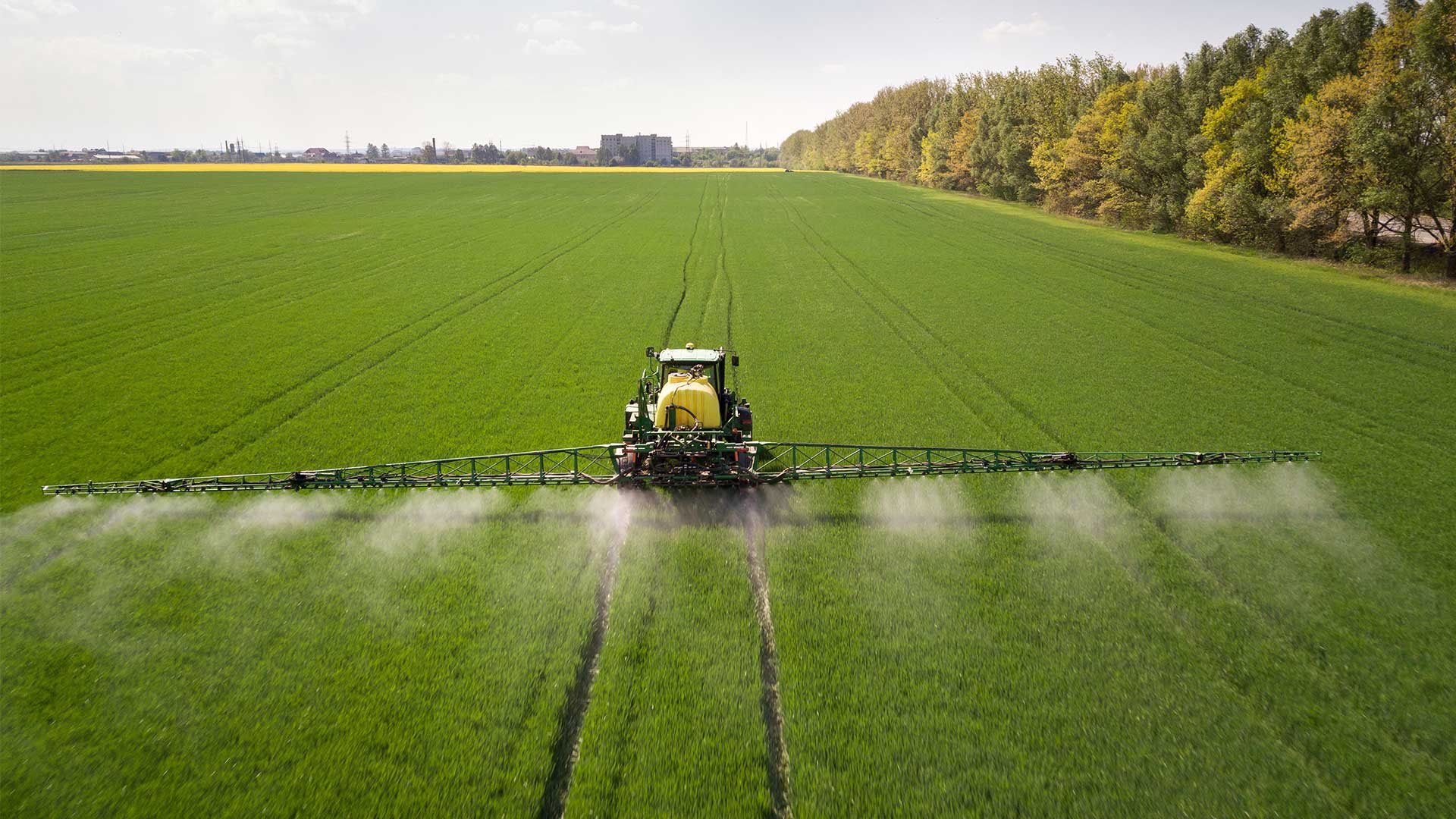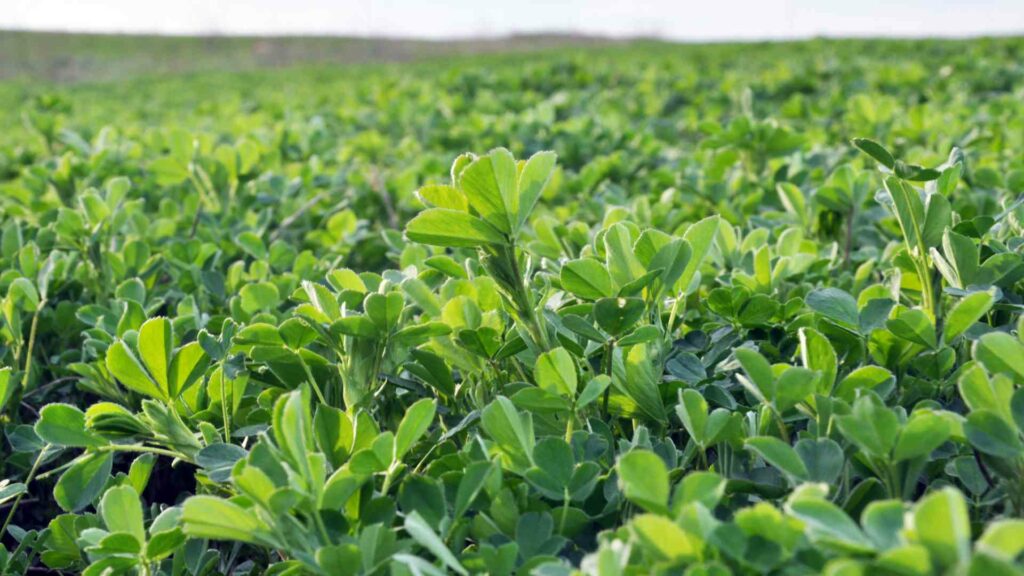The Role of Boron in Agriculture
Boron is a chemical element that aids in the growth of crops and agricultural operations. It helps to provide healthy soil and increase crop yields. It also reduces leaching from soils, prevents diseases in plants, as well as many other applications. This blog post will discuss boron and its role in agriculture and how it can help make your business more profitable.

Boron for Farming Success
The use of boron is a crucial component of farming success. Because without adequate levels, crops cannot grow or can harvest successfully. Soil with inadequate amounts of elemental boron does not provide enough nutrients that plants need to survive. Thus, it leads them into an unhealthy state which causes their growth rates to decrease immensely. This happens when first planted and during maturity and harvest periods.
One of the most important roles of boron is to protect plants from various types of diseases, such as root rots. It also prevents soil erosion by providing a barrier that shields the topsoil. Crops can grow with more resistance. And they can also yield better because they have access to its services. The use of elemental is an excellent way for crops. They can grow in any climate, are protected, and flourish under healthy conditions.
There are many uses for boron within agricultural operations. It includes prevention against disease, reduction in leaching from soils, increase in crop yields, and other benefits, among others. Elemental Boric acid can be used on all sorts of plants without negative effects, which is considered a benefit. Even if elemental boron is not used, it can still benefit crops by maintaining a good pH balance in the soil. This provides an inhibitory effect on pathogens that are present within the crop.
It’s role in agricultural operations benefits many aspects of agriculture. Its use should be considered for every operation, large or small.
Uses of Boron
In agriculture, boron has many different uses. It can maintain a good pH balance in the soil, inhibiting pathogens in the crop. It also helps neutralize alkaline soils with a low pH level. It is also useful for preventing fungi from entering young plants or leaves by keeping them dry.
- Boron is a micronutrient that is present in many different types of soil. And it helps plants grow by increasing the amount of water they can store.
- It is also important for plant growth. Because it regulates the movement of sugars from leaves to roots.
- The most common type of boron used in agriculture is sodium tetraborate decahydrate (NaBH4). It comes as a white powder or in the form of crystals.
- NaBH4 reacts with water to produce hydrogen gas and boric acid (HBO2) when applied to crops. Both of these are essential for plant growth.
- Borax is a laundry detergent containing borax. It is an ingredient that increases crop yields. You can add them during irrigation or sprinkle them on the soil before planting.
Applications of Boron in Agriculture
The applications of boron in agriculture include using it to increase the fertility levels of crops. Or, you can apply it proactively when there is a high risk for contamination by heavy metals like lead, arsenic, copper, and zinc. All of these are toxic to crops and the environment as well. It’s important to be proactive in agriculture. Take a “better safe than sorry” policy regarding the soil and crops.
It is also useful in preventing pests from destroying crops. Finally, it is very important for its ability as a natural fertilizer.
- Boron is a micronutrient that plants need to grow.
- It is present in the soil, water, and fertilizers.
- Plants require boron for cell wall strength and membrane stability.
- Some crops are more sensitive to their deficiency than others.
- The most common symptom of boron deficiency is stunted growth or wilting leaves.
Advantages of using Boron
- Increases crop yields, quality, and nutritional value.
- Stabilizes pH in the soil.
- Keeps plants free of disease or pest infestation.
It has many advantages in agriculture. It is present in fertilizers, water sources, and as an additive to irrigation systems. Farmers should take steps to maintain a healthy level of boron in their soils by using products with the proper ratio of this nutrient. It is crucial for cell wall strength and helps crops to grow at maximum potential.
Some varieties are more sensitive than others, so farmers must know how much they need before applying too much. It can lead to stunted growth or wilting leaves. One disadvantage that comes from overapplication includes leaf yellowing. You can resolve it by pulling up plants and giving them fresh soil.
- It is an essential nutrient for plants and is present in many fertilizers.
- Plants deficient in boron have stunted growth or produce small fruits.
- Boron deficiency also reduces the plant’s ability to fight off pests and diseases like powdery mildew.
- add boron to the soil by using fertilizer containing borax. This contains about 20% boron.
- There are other ways you can increase your plants’ uptake of boron. Adding crushed eggshells will work too.
Boron Quality Matters
The element’s quality matters in agriculture. It is an essential nutrient for plants; without it, the plant will not produce fruit or flowers. The boron must be present at all stages of growth to ensure the plant is healthy and productive.
It’s important to know that there are many sources of boron. But different levels of concentration are necessary depending on what growth stage a particular crop needs it most. For example, only low concentrations are enough when a seed sprouts into a young plant. However, higher concentrations become necessary as the plant matures and grows more leaves.
The main use of boron is that it aids with root development. This strengthens its core to a point where it can better resist external forces.
Boron Strengthens Plants Abilities
Boron also has an important role in the growth of plant cells and in influencing cell walls. These are necessary for plants to grow properly. It can help strengthen a plant’s ability to withstand drought. It helps maintain water pressure within its cells and structure so they do not become too dry. This element also helps ensure enough oxygen is carried into parts of the leaf during photosynthesis. And ensures that toxins from other elements like nitrogen don’t build up or create deficiencies in another part of the plant’s system.
Some studies show boron effects on crops such as potatoes and rice. There is an increase in yields when levels are higher than normal. In cabbage, spinach, and tomatoes, among other plants, it also increases the size of the fruit.
Other studies show that it can be directly applied as a pesticide and fungicide in crops such as peanuts, coffee beans, and cucumbers.
Boron Helps the Animals on the Farm Too
It is also essential for farm animals because it helps with metabolism. It provides calcium which plants do not provide unless fertilized with manure or ash. This means an animal’s bone health would suffer without enough intake of this element. In dairy cows, for example, the ones who took more borax had higher milk yields. These benefits are evident when levels are increased by only one percent over what is usually given to them throughout their feed ratio. It means there can be great results if we apply even a little bit.
How Boron Benefits Agricultural Operations
It benefits agricultural operations in many ways. They come in handy, from increasing crop yield to improving soil quality and reducing weed growth. One benefit of boron on crops is its role as a plant hormone. It increases root development which leads to more food for us.
It helps increase resistance against salt damage from salts in irrigation water or other fertilizers like nitrogenous compounds (N). In soils with low levels of Boron, weeds can grow better than desired. Adding just one milligram per kilogram can reduce weed and other related problems.
Its applications in agriculture are not limited to plant health and growth. Boron is a pesticide for fruit trees like apples in the United States. With borax, you can spray them on the leaves of plants to act as an insecticide or fungicide. Another use is soil amendments, where Boron helps raise pH levels. It balances out acidity caused by organic matter decomposition. This makes nutrients more available to crops which helps them grow healthier and produce better yields for farmers.
Conclusion
Boron is a mineral with many benefits to agricultural production. It helps plants grow and develop. And improves the quality of food crops, so they are more nutritious for humans, livestock, and wildlife. In addition to these huge benefits in agriculture worldwide, some applications help individual farmers or small agricultural operations. Borax is an acid neutralizer that can help prevent soil pH changes from affecting plant growth. Research is the best way to understand how it affects your farm’s yield. However, we do know that this chemical has, time and again, shown positive effects on crop development globally.
It is a mineral that has various agricultural applications. It helps to keep plants healthy, improve the taste of some crops, and make food safer for consumption. Applications of boron in agriculture include soil fertilization, pest control, and plant protection from UV radiation. In addition, it can be used as an additive to water or other liquids like wine which will act as a preservative against bacteria growth during storage. The benefits of using boron are wide-ranging and have been proven scientifically. However, more research still needs to be done on how best to use this natural resource effectively.





